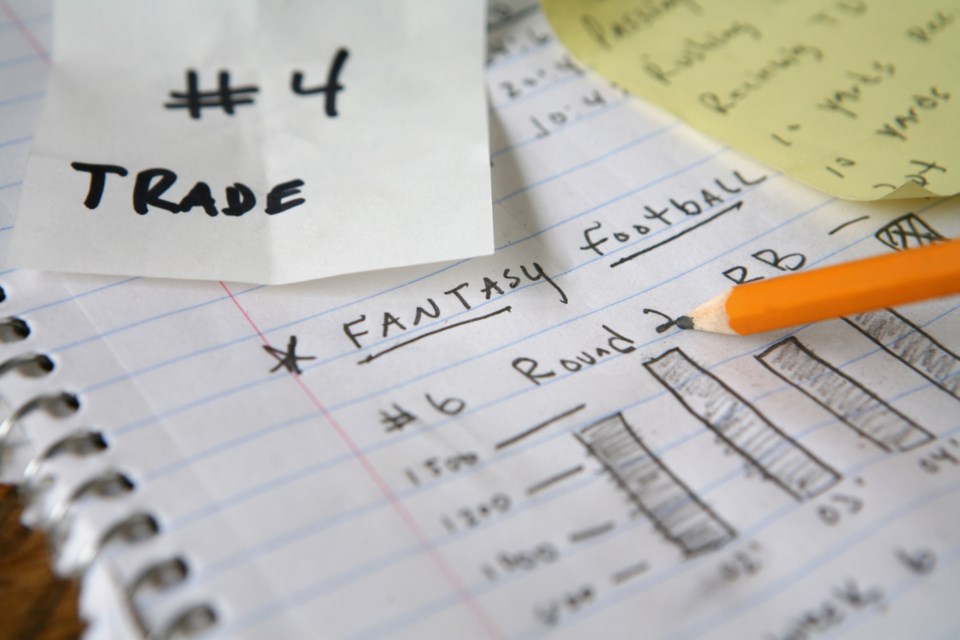Like any self-respecting sports fan who currently draws breath, I have tried my hand at fantasy sports. Unlike many, I am over it.
For anyone who doesn’t know: the term ‘fantasy sports’ refers to online games where participants assemble virtual teams of real athletes and earn points based on the real-life statistical performances of those athletes. This form of gaming has become exponentially more popular since the turn of the century, with a myriad of formats and leagues available. Some put real money on the line, while others simply play to gain bragging rights over their friends.
Various friend groups have convinced me to do multiple seasons of fantasy football and fantasy hockey. I actually won a football league in my second year of participation—granted, that Kurt Warner-esque underdog journey was bookended by two pathetic outings where many of the star athletes I drafted got hurt or were simply ineffective.
If memory serves, my last venture into this world came in 2020, when I had very little fun being demolished by league-mates whom I felt were largely disinterested in engaging with me. That’s the last time I played fantasy sports with professional acquaintances rather than friends.
In fact, it was the last time I’ve played at all.
Before you ask: no, I didn’t quit fantasy sports to cut off a gambling addiction. I’ve never wagered real money before, and I never will. And while it was frustrating to lose, my disappointing record wasn’t the main reason I stopped either.
Instead, I realized that fantasy sports can suck the joy out of being a sports fan.
If you’ve watched sports on TV or a streaming service at any point in the last year or two, chances are you’ve been inundated with sports betting advertisements featuring all kinds of celebrities. Fantasy sports have been on the gambling bandwagon for some time, with well-known companies like DraftKings and FanDuel offering many ways to draft a lineup and compete for monetary prizes.
The links between habitual betting and financial insolvency, substance abuse and mental health issues have been thoroughly documented for some time, as Pique editor Braden Dupuis pointed out in his March 9 editorial. However, I won’t unpack that issue here. Instead, I’d like to point out how fantasy sports can skew our perception of athletics for the worse.
During a simpler time in history, people watched sporting events to cheer on their hometown team, appreciate their favourite sport, or spend quality time with friends and family. Nowadays, folks also want to observe how well the athletes on their fantasy squads are performing.
There is merit to doing this. One of my closest friends says that playing fantasy football and hockey gives him a reason to watch teams he would not otherwise. You may not be a Buffalo Sabres fan (and my condolences if you are), but having a breakout player like Tage Thompson on your fantasy roster may incentivize turning on the occasional Sabres game and watching what a hockey star not named Connor McDavid can do.
Having said that, fantasy sports drive people off the deep end on a regular basis. The sight of professional athletes being harassed on social media by fans who want them to put up big, fantasy-friendly numbers has become all too common in the year of our Lord, 2023. Every so often, these displays of immaturity escalate into death threats, as they have against NFL players Calvin Johnson, Matthew Stafford, Justin Tucker and Brandon Jacobs in the past. (There are many, many more examples).
Moreover, fantasy sports can take a toll even on those who conduct themselves with basic human decency. I, for one, know my involvement in fantasy skewed my ability to watch a game. It wasn’t enough seeing my Green Bay Packers blow out division rivals at that point—I also needed the one Packers wide receiver I drafted to ball out, and I’d be disappointed whenever he failed to.
What a toxic way to engage with a sport I ostensibly enjoy.
Nor is this mindset conducive to an educated outlook on sports. Fantasy tempts us to fixate on numbers in any given contest rather than digesting the big picture. For instance, the blocking of an offensive line never generates fantasy points, yet any true football fan appreciates how a dominant O-line can change the course of a game.
We sports fans are inherently emotional creatures, prone to losing sight of the big picture in life. We don’t need more reasons to exit a stadium or turn off a TV feeling angry or disappointed—yet that’s exactly what fantasy sports can provide. Some fans are more than capable of playing in a healthy manner, but others continue to give themselves to a game that stopped being fun long ago.
If you belong to the latter category, do yourself a favour and take a break.



